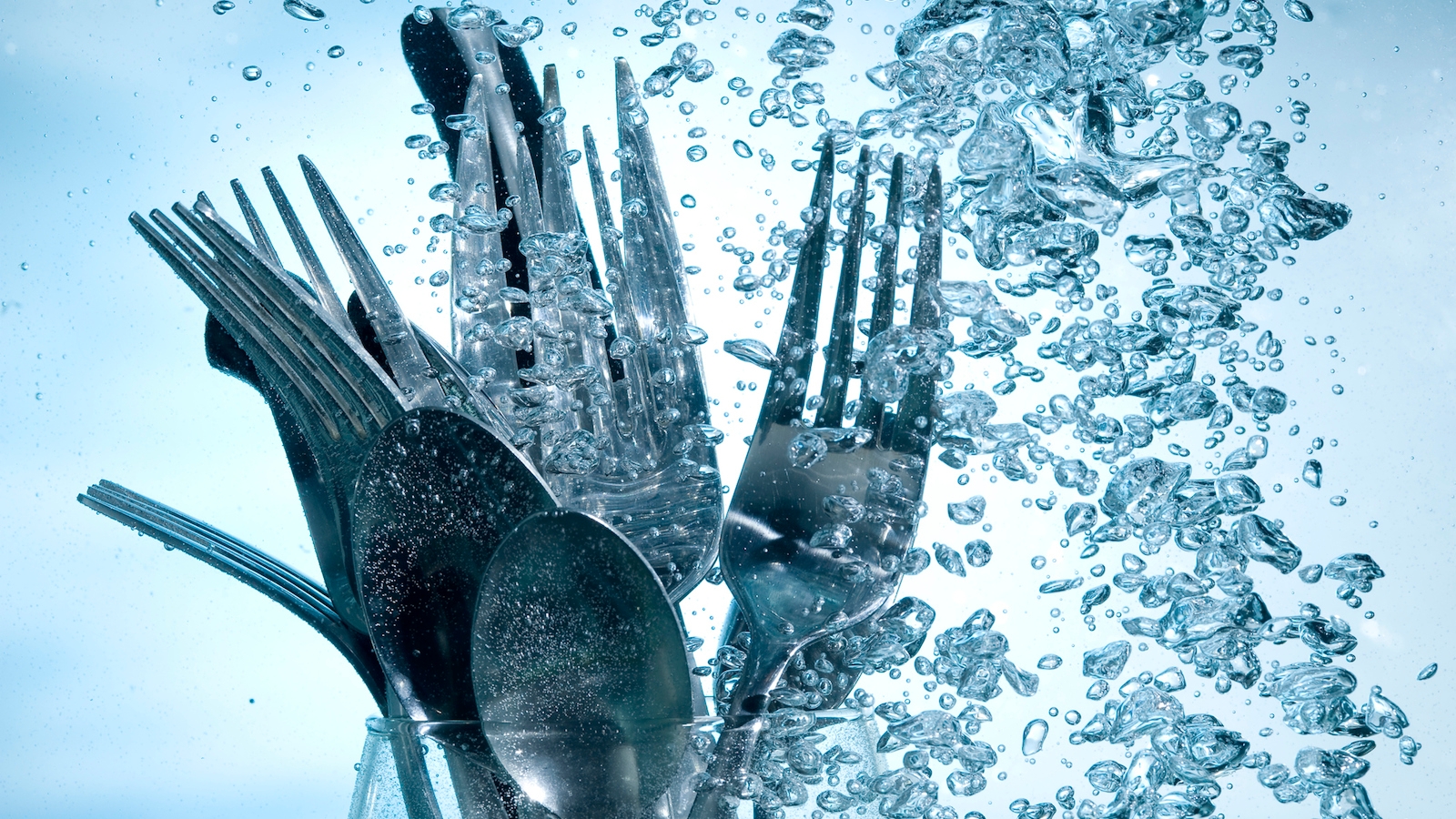Some Jews immerse new dishes, pots, or silverware in a mikveh before using them. While not technically an aspect of kashrut, this practice is viewed as part of the larger effort to infuse sanctity into the otherwise mundane physical act of eating. This ritual of immersion, like many traditional Jewish ritual acts, is widely observed among Orthodox Jews but rarely among religious liberals.
Cleansed With Water
Tevilat Kelim, as the practice is called, is traced back to an incident in the Book of Numbers in which the Israelites are instructed to purify the items they have plundered from their implacable foes, the Midianites:
Gold and silver, copper, iron, tin, and lead–any article that can withstand fire–these you shall pass through fire and they shall be clean, except that they must be cleansed with waters of lustration, and anything that cannot withstand fire you must pass through water (Numbers 31:22-23).
The Jewish legal tradition understands the fire-cleansing as a way of removing the traces of non-kosher food, but views the subsequent immersion as a form of ritual purification.
This second stage is not a matter of kashrut. In fact, food is still considered kosher if it has been prepared in kosher utensils that require immersion but have not undergone the procedure.
With your help, My Jewish Learning can provide endless opportunities for learning, connection and discovery.
In general, Orthodox Jews continue to immerse metal and glass pots and dishes and recite a blessing upon the act, praising God for having “sanctified us through His commandments and commanded us concerning the immersion of utensils.”
Items made of some categories of materials completely unlike those specified in Numbers 31, such as wood and earthenware, do not require immersion. Those made of some other materials that may or may not fit the criterion of “can withstand fire,” such as porcelain, are to be immersed without the blessing. Practice varies regarding some materials, so one should consult a rabbi for guidance on what must be immersed, which items require a blessing, and how one should perform the immersion.
The applicability of this law is generally unquestioned in Orthodox circles, and only items manufactured by a Jew and purchased directly from a Jewish vendor are considered exempt. The liberal religious movements of Judaism do not follow this practice.
The Conservative/Masorti rabbinate’s Committee on Jewish Law and Standards has affirmed the law’s current applicability, but only in a severely limited range. The language of the sources of Jewish law on this matter, the committee’s ruling points out, speaks (as in many other matters) about “idolaters” and “star-worshippers,” rather than in more general terms about “Gentiles.” Many medieval and early modern authorities ruled that the adherents of other Western religions, such Christians or Muslims, are not idol worshippers and that the laws that speak of idolaters do not apply regarding them.
Furthermore, citing recent Orthodox precedents in other realms, the committee also argues that corporate bodies, including firms that manufacture utensils or market them, are not persons and thus cannot be considered idolaters even if they are owned by non-Jews. The Conservative committee concludes that “tevilat kelim is not required in our day, save for personally owned or crafted food utensils purchased from [known] idolaters.”
kosher
Pronounced: KOH-sher, Origin: Hebrew, adhering to kashrut, the traditional Jewish dietary laws.
mikveh
Pronounced: MICK-vuh, or mick-VAH, Alternate Spelling: mikvah, Origin: Hebrew, Jewish ritual bath.



